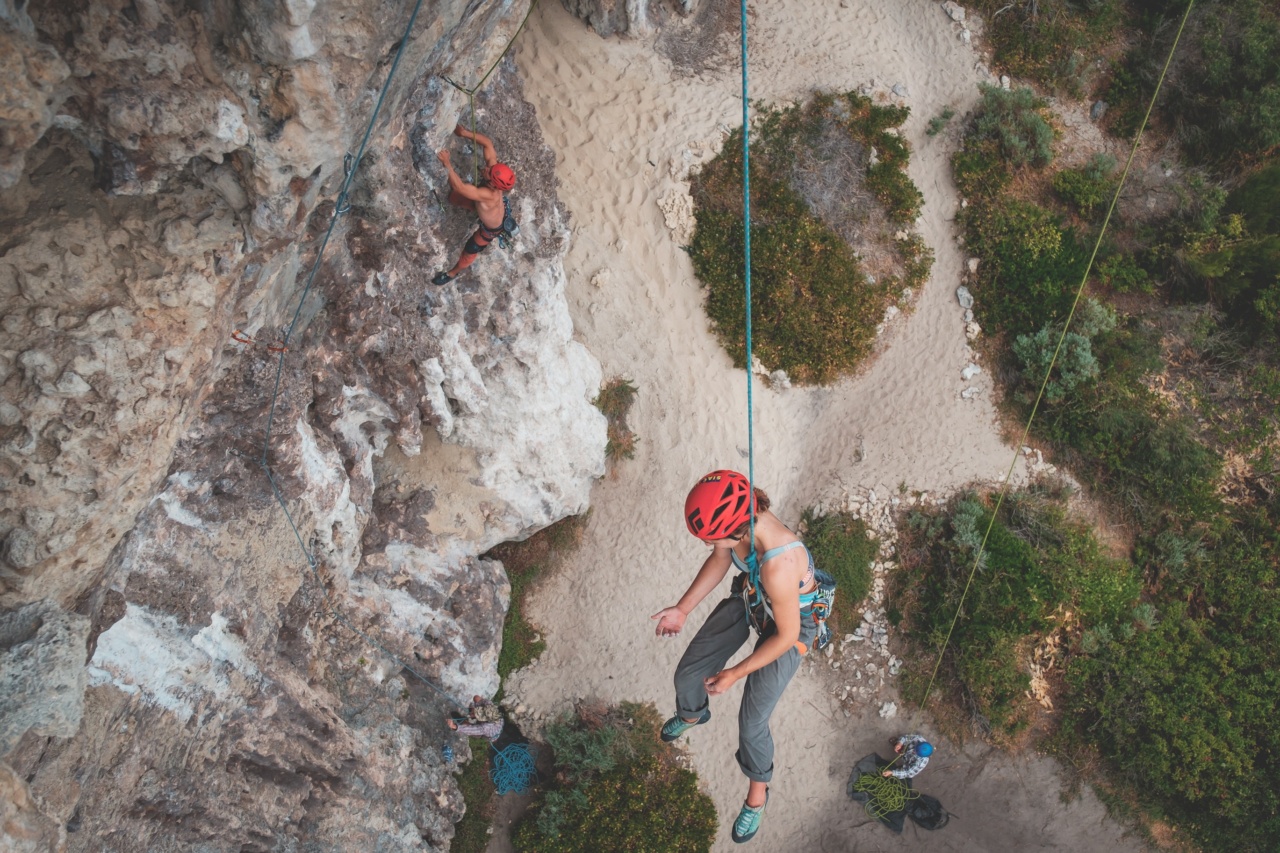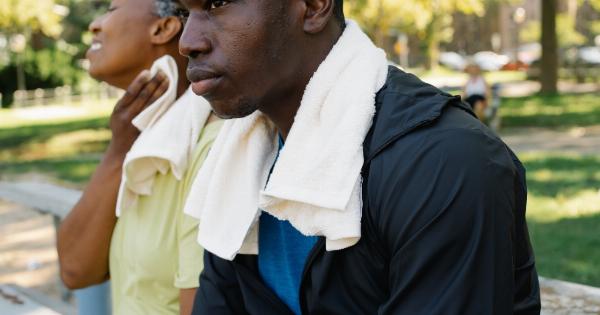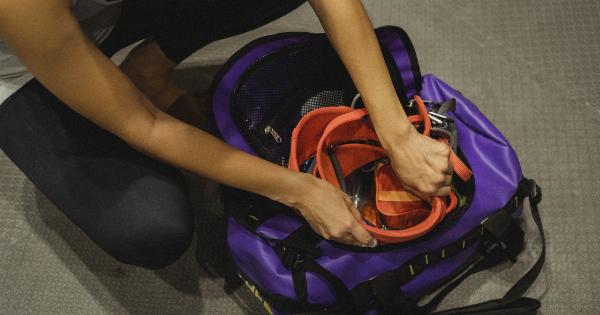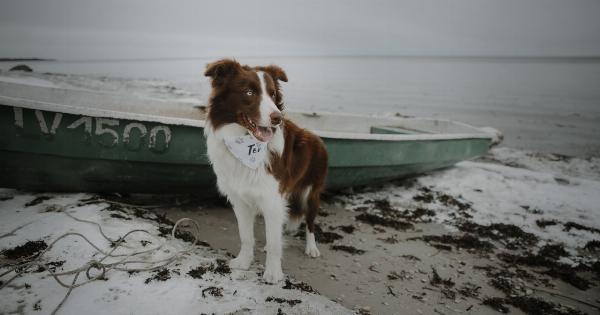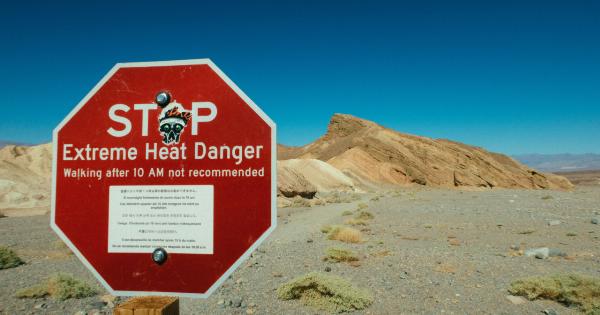Summer is a time for outdoor activities and fun in the sun, but it’s important to be aware of potential hazards that can arise during this season.
Whether you’re planning a beach vacation, going for a hike, or simply spending time in your backyard, taking steps to protect yourself is crucial. In this article, we will discuss some common summer hazards and provide tips on how to stay safe.
1. Sunburn
One of the most well-known hazards during the summer is sunburn. Prolonged exposure to the sun’s ultraviolet (UV) rays can damage your skin, leading to painful sunburns and an increased risk of skin cancer. To protect yourself from sunburn:.
- Apply sunscreen with a high SPF (Sun Protection Factor) of at least 30, and reapply every two hours or after swimming.
- Wear protective clothing, such as wide-brimmed hats, long-sleeved shirts, and sunglasses.
- Seek shade during the peak hours of 10 a.m. to 4 p.m., when the sun’s rays are the strongest.
2. Dehydration
Hot summer days can easily lead to dehydration if you’re not careful. Dehydration occurs when your body loses more fluids than it takes in, and it can result in symptoms ranging from mild to severe. To prevent dehydration:.
- Drink plenty of water throughout the day, even if you don’t feel thirsty.
- Avoid excessive intake of caffeine and alcohol, as they can contribute to fluid loss.
- Eat foods with high water content, such as fruits and vegetables.
- Take frequent breaks and rest in shaded or air-conditioned areas.
3. Heat Exhaustion and Heatstroke
Extreme heat can also lead to heat-related illnesses, including heat exhaustion and heatstroke. Heat exhaustion is characterized by symptoms such as heavy sweating, fatigue, dizziness, and nausea.
Heatstroke is a more severe condition that can be life-threatening. To prevent heat-related illnesses:.
- Stay hydrated by drinking plenty of water and electrolyte-rich fluids.
- Avoid strenuous physical activities during the hottest hours of the day.
- Wear lightweight and loose-fitting clothing.
- If you experience symptoms of heat exhaustion, move to a cooler place, loosen clothing, and apply cool compresses.
- If someone shows signs of heatstroke (hot, dry skin, confusion, rapid heartbeat), seek immediate medical attention.
4. Insect Bites and Stings
Summer brings out a variety of insects, including mosquitoes, ticks, and bees, which can bite or sting and cause discomfort or even transmit diseases. To protect yourself from insect bites and stings:.
- Wear insect repellent containing DEET or other recommended ingredients.
- Wear long sleeves and pants when spending time in areas with a high presence of insects.
- Check for ticks after spending time in wooded or grassy areas.
- Avoid wearing bright colors and floral-scented products, as they can attract certain insects.
5. Swimming Hazards
Swimming is a popular activity during the summer, but there are also potential hazards associated with water. Whether you’re swimming in a pool, lake, or ocean, it’s important to take precautions:.
- Never leave children unsupervised near water.
- Follow safety guidelines and swim in designated areas with lifeguards.
- Learn basic water safety skills and know how to perform CPR.
- Be cautious of underwater hazards, such as rocks or strong currents.
6. Grill Safety
Barbecues and outdoor grilling are synonymous with summer, but it’s crucial to exercise caution when cooking with an open flame. Follow these safety tips to prevent accidents:.
- Keep the grill at least ten feet away from any structures or flammable materials.
- Never leave the grill unattended while it’s in use.
- Use long-handled tools and oven mitts to handle hot grilling equipment.
- Keep children and pets away from the grill area.
7. Allergies
Summer can also trigger allergies for individuals who are susceptible to certain environmental allergens. To minimize allergic reactions:.
- Keep windows closed during high pollen days and use air conditioning.
- Wash your hands and face after spending time outdoors.
- Shower before bed to remove any allergens from your hair and skin.
- Consult with an allergist for proper diagnosis and treatment options.
8. Travel Precautions
If you’re planning a summer vacation, it’s important to consider specific hazards associated with your destination:.
- Research the location and be aware of any health or safety advisories.
- Pack essential items such as sunscreen, insect repellent, and any necessary medications.
- Stay updated on weather forecasts and prepare for any potential natural disasters.
- Inform a trusted individual about your travel plans and provide them with emergency contact information.
9. Fireworks Safety
Fireworks are often associated with summer celebrations like Independence Day, but they can also be dangerous if not handled properly. Follow these safety tips when using fireworks:.
- Read and follow all instructions and warning labels on fireworks.
- Only use fireworks in designated areas where they are permitted.
- Keep a bucket of water or a hose nearby for emergencies.
- Never attempt to relight a dud firework.
- Keep spectators at a safe distance and ensure proper supervision.
10. Heat-Related Vehicle Safety
Leaving children or pets unattended in vehicles during hot summer days can be extremely dangerous. Take the following precautions to prevent heat-related accidents:.
